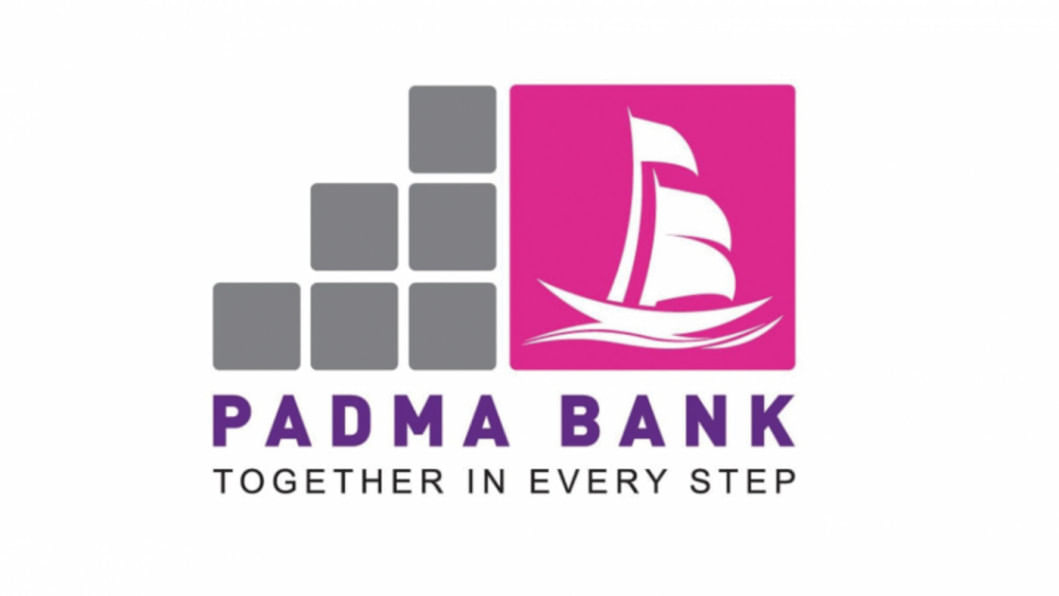02/02/2026

Cash drought grips Padma Bank
Mousumi Islam | Published: 2025-09-18 09:50:58

Padma Bank, formerly Farmers Bank, is sinking deeper into crisis as employees struggle to withdraw their monthly salaries despite funds being credited into their accounts, exposing the severity of the bank’s prolonged liquidity shortage.
Employees of the bank said that they were unable to access cash either through ATMs or bank counters, leaving hundreds of families in financial distress and fuelling fears over both staff livelihoods and depositor safety.
“I joined Padma Bank with dreams of building my career. Now I can’t even withdraw my salary. If this continues, I don’t know how long I can survive,” said Shahinul Islam, an employee.
Several officers, speaking on condition of anonymity, described the severity of the situation.
One staff member said, “I can’t manage household expenses anymore. The salary is being shown in my account, but I can’t get cash in hand. Meanwhile, I have to pay for groceries, rent, and my children’s school fees. Every month, it feels like I am begging for my own money.”
Others noted that in some branches, staff were instructed to withdraw only Tk5,000-10,000 at a time to ease pressure on cash reserves. As a result, workers are forced to make repeated visits to ATMs and bank counters, only to secure a fraction of their wages.
Many employees said they often waited days to access even partial sums, compounding stress for hundreds of families.
The growing frustration has drained morale within the workforce, with some openly voicing fears that if the liquidity shortage persists, the bank may stop crediting salaries altogether.
At the July monetary policy announcement, Bangladesh Bank Governor Ahsan H Mansur declared Padma Bank “non-functional” and confirmed it would be merged with another institution, describing it as “among the dying banks.”
He also said legal measures would be pursued to return depositors’ money if the bank could not repay in cash.
The governor’s remarks shook confidence further. Depositors – already cautious after a string of scandals at private banks – became increasingly hesitant to keep funds in weak institutions.
Some Padma clients reported being unable to withdraw large sums and are now shifting their savings to more stable banks.
For staff, the situation has become both a professional and personal ordeal. Uncertainty over jobs is mounting, and frustration has spilled into workplace discussions, with many considering leaving the bank should opportunities arise elsewhere.
Kazi Md Talha, CEO of Padma Bank, said, “We have not yet received any decision from Bangladesh Bank. They are still reviewing our audit report. The governor mentioned that the banking task force would decide on the matter. The central bank has always told us to wait and wait, but they are not providing us with any liquidity support.”
Economists view the inability of Padma Bank to pay its own staff as a clear sign of deep structural failures.
Dr Zahid Hussain, former lead economist at the World Bank’s Dhaka office, warned, “When a bank fails to pay its own staff on time, it is a red flag. This suggests severe liquidity shortages and governance issues."
"The next risk is that depositors may not be able to withdraw their money, which would shake confidence further and potentially lead to a bank run," he added.
Weak financial health
Officials of the Bangladesh Bank confirmed that Padma Bank has been in fragile financial condition for years, burdened with high non-performing loans, weak corporate governance, and eroding customer trust.
Depositors have withdrawn substantial sums over the past year, intensifying the liquidity crunch.
“The bank has long been in a fragile position. Weak loan recovery and management inefficiencies have eroded depositor trust. As clients pull out their funds, the bank’s capacity to meet regular obligations, including staff salaries, has become increasingly difficult,” said a central bank official.
According to central bank data, by the January-March quarter of this year, Padma Bank’s total outstanding loans stood at Tk5,595 crore, of which Tk4,849 crore, or 86.66%, were non-performing.
Deposits amounted to Tk6,186 crore, but the income generated from loans was insufficient to cover interest on deposits, resulting in heavy annual losses. Trust has continued to deteriorate as the bank struggles to return depositors’ funds.
From political birth to near collapse
Padma Bank’s troubled journey began in 2012 when the Bangladesh Bank approved Farmers Bank under political pressure during the Awami League’s rule.
Its founding chairman, former home minister Muhiuddin Khan Alamgir, was soon implicated in large-scale embezzlement scandals and forced to resign in November 2017.
In a subsequent government-backed rescue, Chowdhury Nafeez Sarafat, a former banker and asset management executive, was appointed chairman.
To avert collapse, five state-owned financial institutions – Sonali Bank, Rupali Bank, Agrani Bank, Janata Bank, and the Investment Corporation of Bangladesh (ICB) – together acquired a 65% stake. The bank was rebranded as Padma Bank on 29 January 2019.
Despite these interventions, the crisis persisted. In January 2025, Chairman Nafeez Sarafat resigned amid mounting pressure.
Earlier, in December 2023, Bangladesh Bank had introduced a merger initiative to consolidate ten weak banks with stronger institutions.
Under this plan, Padma Bank was set to merge with Shariah-based EXIM Bank, with a formal agreement signed on 18 March 2024 under central bank mediation.
Following the fall of Sheikh Hasina’s government, economist Ahsan H Mansur replaced Abdur Rouf Talukder as Bangladesh Bank governor. The central bank also restructured EXIM Bank’s board and announced the merger of five Shariah-based banks, including EXIM.
However, EXIM Bank Chairman Md. Nazrul Islam Swapan opposed the merger, asking for two years to recover independently.
Editor & Publisher : Md. Motiur Rahman
Pritam-Zaman Tower, Level 03, Suite No: 401/A, 37/2 Bir Protik Gazi Dastagir Road, Purana Palton, Dhaka-1000
Cell : (+88) 01706 666 716, (+88) 01711 145 898, Phone: +88 02-41051180-81